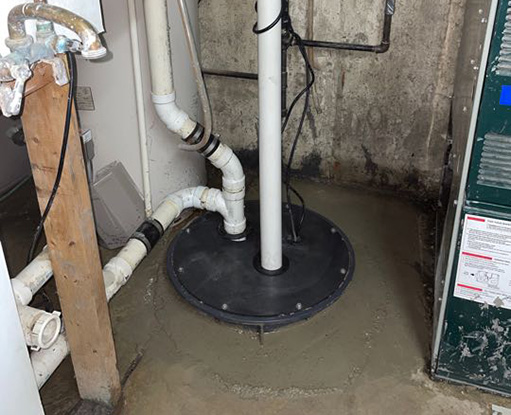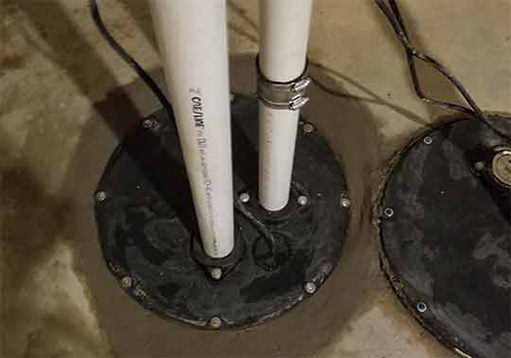No homeowner ever plans for the appliances and equipment in their home to fail prematurely, according to www.mhnproperties.com. But this problem happens all the time. Most times, when it does, it is due to small issues that could have been avoided with a little knowledge and effort.
In this post, we discuss the common problems that can affect an ejector pump and cause it to fail prematurely. We explain the causes of ejector pump failure and tips to help prolong the life of this essential piece of equipment in your home.
Common ejector pump problems
If you bought a quality ejector pump, it should last between 7 and 10 years. But this depends on the correct installation and proper maintenance of the pump. If the conditions for the smooth function of the ejector pump are not met, issues you will experience in your home include:
Float switch malfunction
The float switch activates the pump when the water inside the tank reaches a predetermined level. It also switches the motor off when the pit is empty. The float switch makes it possible for the pump to function automatically. If it fails to activate the pump or switch it off, your home will be flooded with sewage, or the motor will burn out.
Plumbing is clogged
Because it handles wastewater with numerous solids, some buildup is expected within your plumbing system. But sometimes – perhaps due to the wrong items being flushed into the drains or poor maintenance – the buildup inside the lines can prevent wastewater flow through the drainage pipes. If this happens, your ejector pump will work, but no waste will be removed from the tank.
Pump cycles frequently
The pump cycle is the interval between when the pump activates and when it shuts down (after emptying the tank). Since the pump only powers on when the tank is full, there should be a decent duration between each cycle. If the ejector pump is cycling frequently, it means it is not pumping effectively – the content of the tank is not being removed completely before the motor powers down.
Pump makes strange noises
Your ejector pump will make some noise when it is working, the normal humming sound of the motor. It is abnormal for an ejector pump to make sounds like the grinding screech of metal against metal or rattling and clunking sounds. If you are hearing strange sounds from your ejector pump, the impeller is likely clogged or bent, or the casing is broken.

Cleaning the ejector pump and tank regularly helps to prevent excessive buildup that can lead to pump failure.
Steps to prolong the life of your ejector pump
By taking steps to avoid the root cause of these problems or discovering them before they become major issues, you will protect your ejector pump. Here are the best practices for prolonging the lifespan of your ejector pump.
Watch what you flush
Ejector pumps are not designed to handle certain types of waste. Dumping grease, fats and oils in your drains is a recipe for trouble. Avoid flushing so-called flushable items into your drains: cotton swabs, disposable wipes, diapers, dental floss, condoms and feminine hygiene products, to name a few.
Cover your drain openings
Harmless items that can hurt your ejector pump if they enter the system include starchy food (potatoes, rice or pasta) and stringy vegetables (like celery). Human or pet hair can also impede the impeller. You can install strainers on drain openings to keep these items out of your drains.
Avoid toxic chemicals
Chemical drain cleaners and clothes dryer sheets threaten the function and longevity of your ejector pump. The chemicals in drain cleaners will corrode the pump. The synthetic fibers in clothes dryers will clog the ejector pump and interfere with the operations of the motor.
Clean the pump regularly
Ejector pumps handle wastewater with a lot of solid and semi-solid waste. Some of this non-liquid waste inevitably gets stuck inside the pump. Cleaning the ejector pump and tank regularly helps to prevent excessive buildup that can lead to pump failure.
Inspect the system on a schedule
Regular inspections help you stay up to speed with what is going on with your ejector pump. They help you stay steps ahead of problems in the system. By letting you discover issues at their early stages, inspections allow you to solve problems before they escalate.
Service your ejector pump
At least once a year (every six months preferably), you should have your ejector pump serviced by a professional. How often you do this depends on the age of the pump and how much wastewater it handles. This small step can add years to the life of your ejector pump.
To conclude, keeping your ejector pump running smoothly and prolonging its life is not rocket science. It involves paying attention to your equipment and a proper maintenance routine.

[…] can also inflict costly water damage on your home. But you can avoid all that if you know how to detect the early warning signs that your ejector pump is about to […]